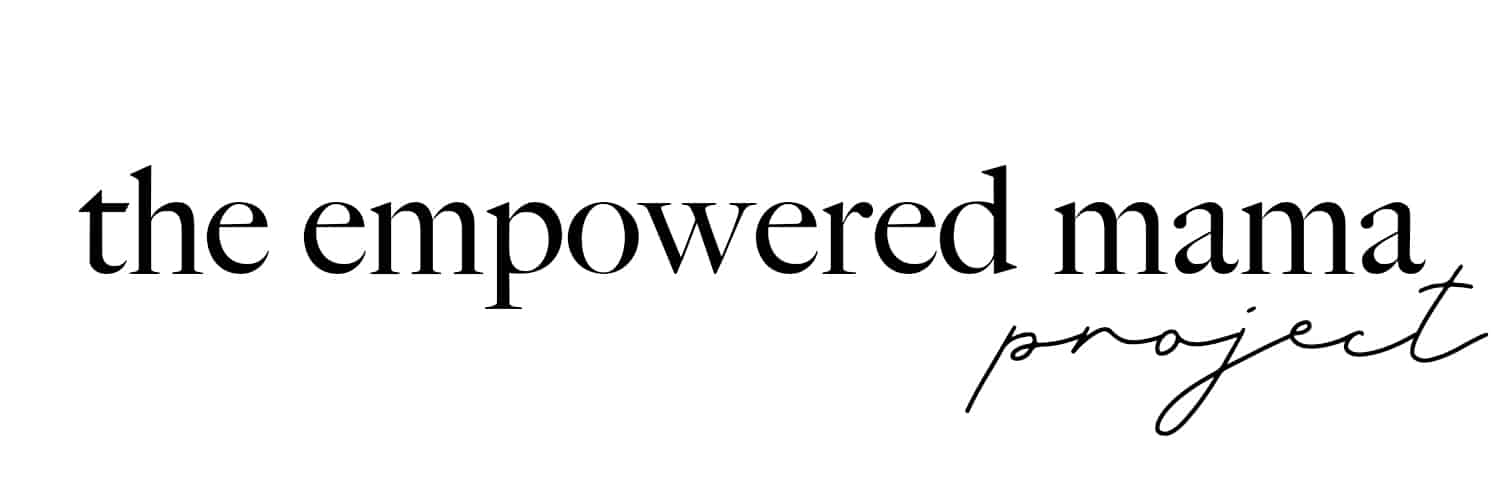The first few days of breastfeeding your baby are a haze of oxytocin, sleep deprivation, recovery from a major life event and a crazy cocktail of hormones that can leave you feeling like you’re both on cloud nine and terrified at the same time.
It’s exhilarating, exhausting and oh so beautiful.
Whether it’s baby number one or baby number five, there are ups and downs as you go through the process of learning about this new little human of yours.
You may find this ‘getting to know you’ phase to be a little awkward, especially around breastfeeding.
Many women feel that because breastfeeding is a natural thing to do, the ‘how to do it’ part will come naturally, but that isn’t always the case and it can change from baby to baby.
With my son, even though he wasn’t allowed to start breastfeeding until he was 9 weeks old (NICU baby), he took to it with ease, as did I, and we had a very straightforward breastfeeding experience.
I thought, as I was an experienced breastfeeding mother, when it came time to breastfeed my daughter, things would be much the same. But I was completely wrong.
The first week of her life was possibly the most stressed I have ever felt about feeding my baby.
From not being able to latch, to having to drip feed her via a syringe, from tongue ties through to oversupply and engorgement, we experienced it all.
And I was not prepared for it.

Why Is Breastfeeding So Difficult?
There are many reasons why breastfeeding can be difficult, including the most obvious (but often overlooked) being that you have two people, who are trying to learn a new skill, with massive barriers in communication.
Wrap that in the idea that we feel like this is natural and should come easily and you just add stress and feeling like you’re not doing it right, and not to mention that you’re recovering from birth and your emotions are all over the place.
It’s easy to understand why it is so difficult, but we expect it to be a breeze. It doesn’t work like that.
Breastfeeding is a skill for both mother and baby. It takes time to learn, often requires someone to help teach us, and it takes patience.
But without the right support, and without the right education, we feel like we are failing.
And it’s not just new Mamas who feel like this.

When I was trying to establish my breastfeeding relationship with my daughter, I felt like I was doing everything wrong.
I was educated, I had amazing support, and I still put so much pressure on myself to do it ‘right’.
Keeping in mind that the first 6 – 8 weeks are often the most difficult with breastfeeding, it would be interesting to see how this number would increase with the right education and support of women during their fourth trimester.
This is alarming because not only does it tell us that there are women who are feeling like they have no choice other than giving up breastfeeding, but also that there is either lack of support available or lack of understanding how and where to obtain support.

When Does Breastfeeding Get Easier?
Even with baby number two, amazing support and a previous history of breastfeeding, I still found myself Googling ‘when does breastfeeding get easier?’
The short answer: It’s different for everyone.
The long answer: The overwhelming majority of women agree that by around the 3 week mark things start to settle down, by week 6 you’re feeling like you’ve got the hang of things and by week 12 you’re starting to come out of the haze and feel like you’re a bit more ‘you’ again.
These are in no way concrete timeframes, and if you’re at week 3 and rocking it, that’s bloody amazing,
If you’re at week 12 and still struggling, Mama I hear you (please talk to a Lactation Consultant, they are boobie Angels…).
Like we say over and over, breastfeeding is a skill. It takes time to learn and it takes time to get into the swing of things. It doesn’t happen overnight.
Learning how to hold your baby can be awkward (I always found that ‘football hold’ to just feel strange), reading their cues can be difficult, wondering if they’re feeding enough (can they feed too much…?) and working out how to handle all that leakage takes time.
Just know, it does get easier. It honestly does. I’ve spoken to so many mothers who have been amazed at how it seems like it went from night to day with their breastfeeding.
How one-minute things seemed so difficult and the next they were feeding their baby while grocery shopping and not skipping a step.
Breastfeeding does get easier.

Why Does Breastfeeding Hurt?
It’s important to acknowledge a number of women believe as because breastfeeding can hurt or cause discomfort in the early days, that this is a normal thing and they endure it once breastfeeding is established. This is not the case.
When you’re starting to establish your breastfeeding relationship, it can be common for there to be pain as your nipples adjust to the new feeding patterns.
Increased sensitivity due to hormonal changes, engorgement as your milk comes in, and a keen baby all can contribute to breastfeeding pain.
However, this pain should subside quickly as you and your babe continue with breastfeeding.
If you haven’t already, be sure to spend some time with a lactation consultant.
Simple changes to your baby’s latch can make the world of difference to the pain and discomfort you feel.
In Australia, the Australian Breastfeeding Association is available to chat on the phone, or you can find a lot of great information on their website.
Some women don’t experience typical ‘pain’ with breastfeeding, but may have other concerns such as nausea, sudden feelings of sadness and changes in mood, tingling and other physical manifestations of a condition called Dysphoric Milk Ejection Reflex, or D-MER.
Be sure to chat with your Lactation Consultant if you feel like this could be you, you aren’t alone.

Tips To Make Breastfeeding Easier:
You might be nodding along thinking ‘yeah, yeah, it gets easier… but what about right now’ and that’s okay.
There are things you can do now to make breastfeeding easier, simple tweaks that seem like they wouldn’t make a huge difference, but each little step forward helps.
You don’t have to do all of these (but please do #1), and you may find some don’t suit you and that’s okay.
This is your breastfeeding experience, you can do what you need to do to make it work for you.
1 – Be Kind To Yourself
Mama, the fact that you’re reading this, and have read this far, goes to show how much you care.
You are doing a great job, and you will get through this. Be kind to yourself.
This is a new skill, even if you’ve breastfed before.
All babies are different, they have different needs, different styles and what worked for one may not work for another.
You are not broken, you aren’t doing it ‘wrong’. You are learning what works for you and your babe and it takes a little time.
2 – Take Your Time
Don’t rush things.
Trying to stick to any sort of schedule has been shown to have a negative impact on a breastfeeding relationship between a mother and baby and can cause negative effects on milk supply.
In addition, scheduled feeding of a breastfed baby in the first 6 weeks has been shown to relate to lower weight gain.
Remember, a baby’s stomach is very small, especially in the first few days after birth.
So naturally, they will nurse more frequently.
Your baby will also nurse using ‘cluster feeds’ at times when they may be leading up to a growth spurt, fighting off a bug or illness, or when they are teething and need extra comfort.
These are all normal things and sometimes we don’t even realise they are happening.
Take your time with your baby. Take time to set yourself up and get comfortable, take time to latch properly and take time to feed your baby for as long as they need.
Your milk changes throughout the feed based on what your baby needs, it is amazing.
Likewise, don’t stress if your baby seems to be a lightning fast feeder.
My little girl was on and done in 10 minutes and I stressed because all the books said to feed 20 minutes each side.
But, she still had plenty of wet nappies, had fantastic weight gain (and such cute chubby thighs) and was satisfied with her quick feeds.
All babies are different.

3 – Set Up A Breastfeeding Basket
A breastfeeding basket is a little nifty idea that allows you to have all the things you need close by and you can cart around the house with you.
I never had a set space I would feed our daughter so I had a basket that I put all the things in I’d need so I didn’t have to try and get up once we started the feed.
I’d include things like a portable phone charger, snacks, a water bottle, a cloth, and an extra light blanket in case she felt cold.
Anytime I forgot to grab it I was able to ask my husband to get it, or my older son who knew what ‘Mummy’s Basket’ was.
4 – Relax And Trust Your Body
Oxytocin is one of the hormones your body needs to trigger off the let down of your milk.
Cortisol is the hormone produced when you are stressed. Cortisol and oxytocin don’t exactly play nice.
Cortisol may inhibit or affect your let down response, leading to a disruption in the production of your milk supply.
Interestingly, oxytocin also acts as a counter to cortisol and can reduce cortisol levels and reduce stress.
So what does this mean for you?
Telling someone to ‘relax’ is possibly the most guaranteed way for them to not relax.
Instead, focus on how your body feels. Relax your shoulders, get into a comfortable position, relax your jaw and keep your hands soft.
We carry tension in our jaw and hands which causes tension in the rest of our body.
Try it now, tense your jaw and feel the tension in your body. Now relax it. See the difference?
Trust your body knows what to do.
There are a myriad of triggers and neurotransmitters firing off from the moment you smell your baby, think about your baby, or have your baby close by.
These all lead to your let down response.
It is completely involuntary, take a deep breath, your body knows what to do.

5 – Spend Time With A Lactation Consultant
I am of the belief that every single mother should have a Lactation Consultant and they should form a standard part of our cares for an antepartum and postpartum mother.
A Lactation Consultant is different to a Midwife or Labour and Delivery Nurse.
According to Rebecca L. Mannel, director of lactation services at the University of Oklahoma Health Sciences Center in Oklahoma City, lactation consultants “are the only healthcare professional specifically trained to manage the full spectrum of breastfeeding, from prenatal to postpartum, from normal healthy moms and babies to complicated situations involving maternal risk factors or illness or infants born preterm or with some other health complication.” (Source)
Studies also show that time spent with a Lactation Consultant increases the number of women initiating breastfeeding, increases continued breastfeeding rates and increases rates of exclusive breastfeeding. (Source)
A Lactation Consultant can also diagnose and advise on conditions such as tongue and lip tie, which can hinder a breastfeeding relationship.
My daughter had both and breastfeeding was incredibly difficult for us until they were released.
I tried for 5 days to get my daughter to latch properly, within 5 minutes of being with my Lactation Consultant she was able to help me not only latch my daughter, but had her feeding without any pain or discomfort either.
I have never met anyone who has said that time spent with a Lactation Consultant was wasted. They are amazing.

6 – Find Your Position
There are so many different positions for breastfeeding and not all of them work for all women.
Each position has its benefits and can change based on the size of your breasts, the speed of your let down (sometimes it can be so fast) and the way your baby prefers to nurse.
Try different positions until you find one that is right for you.
Here’s an idea of some different breastfeeding positions that can not only help relieve engorgement (especially when your milk comes in) but may be more comfortable for you than the position you are currently using.

7 – Listen To Your Baby
Your baby is ‘talking’ to you all the time, we just don’t realise because we don’t know the language.
Get to know your baby’s hunger cues, starting a feed before your baby is crying can be less stressful for both you and your babe.
Caitlin and I both swear by the Dunstan Baby Language, which you can see in the video below.
Whether you’re just starting breastfeeding your first baby, or if you’re a seasoned Mama who has done this before, it can still leave you wondering when does breastfeeding get easier?
You’re not alone, and you don’t have to do this on your own.
Hopefully, the tips to make breastfeeding easier in this article can help you until you and your baby find your rhythm and get into your boobie feeding groove.
You’ve got this Mama.

























